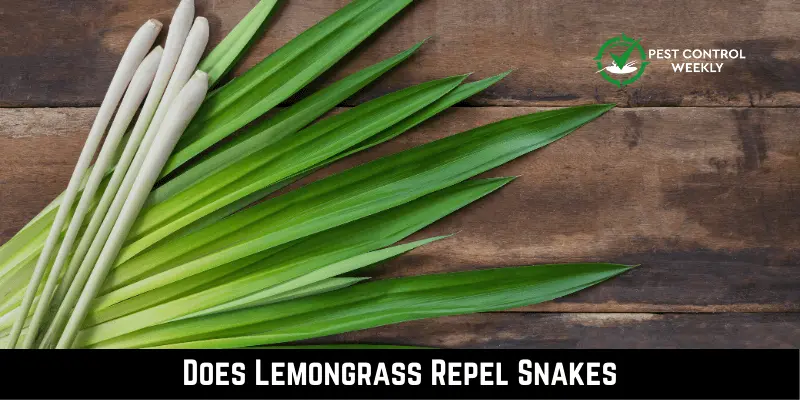Have you had enough of the snakes you keep finding on your property? You might have lemongrass in your garden, you might want to know Does lemongrass repel snakes?
Yes, lemongrass repels snakes. There is anecdotal evidence that utilizing lemongrass essential oil or growing lemongrass around your home will deter snakes. Scientific studies do not support this theory, only anecdotes do.
This article will address your questions about whether or not lemongrass is helpful as a natural snake deterrent. Keep reading if you’re interested in learning if lemongrass works as a snake deterrent!
Lemongrass Properties
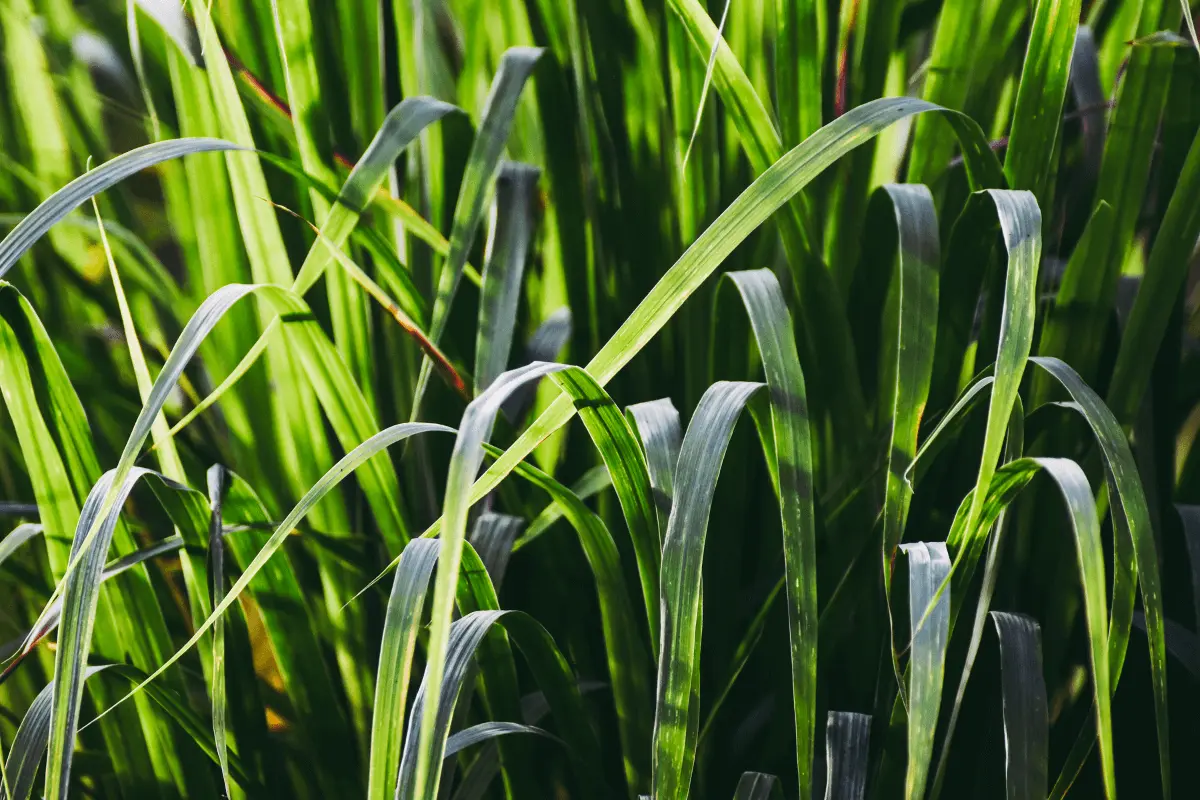
Lemongrass, also known as Cymbopogon, is an underappreciated superstar of the plant kingdom because of its refreshing citrus scent. This perennial grass is well-known for its tall, willowy look and is used to create an exotic feel in gardens worldwide. The many health advantages of lemongrass have contributed to the plant’s widespread acclaim.
The essential oils found therein are high in citral and geraniol, which are members of the same family as citronella and have been shown to have antibacterial, anti-inflammatory, and antifungal effects. Because of these properties, lemongrass may be used as a natural treatment for various health problems, including indigestion, nervousness, and sleeplessness. Furthermore, this grass’s strong perfume might act as a natural repellent for some pests.
How To Use Lemongrass As a Repellent?
There is a method of using lemongrass as a natural repellant:
- Lemongrass needs full light and well-drained soil to provide the best smell.
- As a natural fence, it can be planted around the outside of a garden or at the entryways of dwellings.
- For a more concentrated impact, you may smash the leaves and massage them into surfaces or add them to a spray.
- However, it is essential to remember that including lemongrass in a larger plan to eradicate snakes is necessary.
- Keeping the outside of the house and yard clear of debris, repairing any cracks or holes, and, if required, hiring exterminators are all good first steps.
- In the end, while lemongrass can help make your yard less inviting to snakes, it is not a foolproof method.
Lemongrass and Snakes: The Connection
The history of the connection between lemongrass and snake avoidance is intriguing. These reptilian species are supposedly sensitive to certain scents in the fascinating world of snakes. Because of its similar aroma to citronella, lemongrass may be used to ward off snakes. Snakes are believed to avoid regions with high concentrations of lemongrass because the citral and geraniol substances responsible for the plant’s distinctive aroma bother them.
It should be noted, however, that there is little scientific data to back these assertions and that the efficacy may vary with the snake species. As a result, while growing lemongrass in your yard may make it less likely that snakes will enter, it is not a foolproof strategy. If you want a thorough strategy to keep snakes away, it’s best to talk to experts in pest control.
The Science Behind Lemongrass as a Snake Repellent
Although the story of lemongrass’s effectiveness as a natural snake repellent has been widely shared, it has yet to be backed up by solid scientific data. Commercial snake repellents have been the focus of most research, rather than herbal alternatives. The theory is partially out there because lemongrass is genetically related to citronella, another plant commonly found in commercial insect repellents.
In principle, the aromatic chemicals found in lemongrass may similarly affect snakes. It’s important to remember that various snake species have different sensory systems and behavioral patterns, so any deterrent impact is likely species-specific. Scientists agree that while lemongrass may have some snake-deterring effects, it shouldn’t be used as the only means of snake management. Therefore, calling in a professional snake removal service is the best option for individuals coping with a long-term snake infestation.
How Do Snakes Respond to Lemongrass?
Snakes’ interactions with their environments are interesting when one delves into their hidden world. Their reactions to lemongrass are one example of such an interaction. The sharp smell abilities of these secretive animals help them find their way around. Due to their acute sense of smell, some aromatic chemicals can profoundly affect their demeanor.
Citrus-scented chemicals like citral and geraniol, which are plentiful in lemongrass, are thought to cause pain in snakes and cause them to avoid the plant. The widely held belief is that the powerful perfume of lemongrass acts as a natural deterrent by overwhelming the snake’s sensory sense. However, because of the great variation in snake sensory biology, this response may not hold true for all snake species.
Role of Lemongrass in Repelling Snakes
Lemongrass has an important and nuanced part in the history of methods for naturally repelling snakes. It can repel snakes because of its aromatic character, which contains molecules that are unpleasant to snakes. Nonetheless, it is important to keep in mind that the efficacy of this concept has yet to be experimentally proven across all snake species, regardless of how intriguing it may seem.
As a result, while lemongrass can be useful in reducing snake populations, it shouldn’t be seen as a panacea for the problem. The tale of lemongrass and snakes is intertwined, highlighting the complex relationships between plants and animals in our environment. Whether you grow lemongrass as part of an ecologically balanced garden or utilize it in a natural repellent recipe, this is true.
Understanding Snakes and Their Dislikes
Snakes, the enigmatic reptiles of the natural world, are guided by a singular system of instincts and sensory experiences that determine their preferences. Snakes can find their way about because of their acute sensitivity to chemosensory signals, such as smell trails and body temperature. They have aversions to particular flavors, temperatures, and textures, usually in response to danger or unfavorable circumstances.
For instance, they have been seen to flee from situations when particularly intense or unpleasant odors assault their olfactory receptors. Recognizing these aversions as a starting point for a strategy to deter snakes is typical practice.
Snakes and Their Sense of Smell
Snakes’ amazing sense of smell is important for their well-being and success in the wild. Using their forked tongue, they collect airborne particles and transport them to Jacobson’s organ, a specialized sensory apparatus located on the roof of the mouth, allowing them to smell in stereo. This system helps them create a chemical “road map” of their environment, which is useful for finding food, mating, and avoiding danger.
Why Certain Plants Can Deter Snakes?
There is a complex network of relationships between all species because of nature’s unlimited wisdom. Certain plant species have developed the ability to secrete volatile aromatic chemicals to protect themselves from herbivores and other predators. These scents may be neutral or appealing to humans, but animals like snakes may find them repulsive.
Some plants, like lemongrass, are thought to discourage snakes because their fragrant components overload or confuse a snake’s chemosensory system, causing the animal to flee the area. However, there is some uncertainty about the efficacy of these botanical deterrents because their efficiency differs between snake species. As part of a larger, more thorough approach to snake control, such plants are typically included in a garden or on a property.
The Limitations Of Lemongrass As A Snake Repellent
Lemongrass as a natural snake repellent is fascinating, but there are limitations:
- As a first point, the diversity of snake species and their unique sensory perceptions mean that the effectiveness of lemongrass as a snake repellent is only sometimes applicable.
- Some snakes may be more or less sensitive to the smell of lemongrass than others. Lemongrass, like other plants, has a limited spatial influence, thus its aroma may not travel far enough to discourage snakes.
- It’s also important to remember that snakes, being very adaptable species, can develop a tolerance to the scent over time.
- Therefore, while lemongrass may make the atmosphere less welcoming to snakes, it is not a failsafe remedy.
Other Plants That Repel Snakes
Marigolds

Marigolds, with their eye-catching colors and enticing aroma, aren’t only pretty to look at. The strong scent given off by these blossoms might prevent insects, rabbits, and even snakes. Marigolds may cause a chemosensory overload in a snake, making it more likely to avoid the area. However, whether or not marigolds are useful as a snake deterrent is still debatable and may differ amongst snake species.
Snake Plant or Mother-in-Law’s Tongue
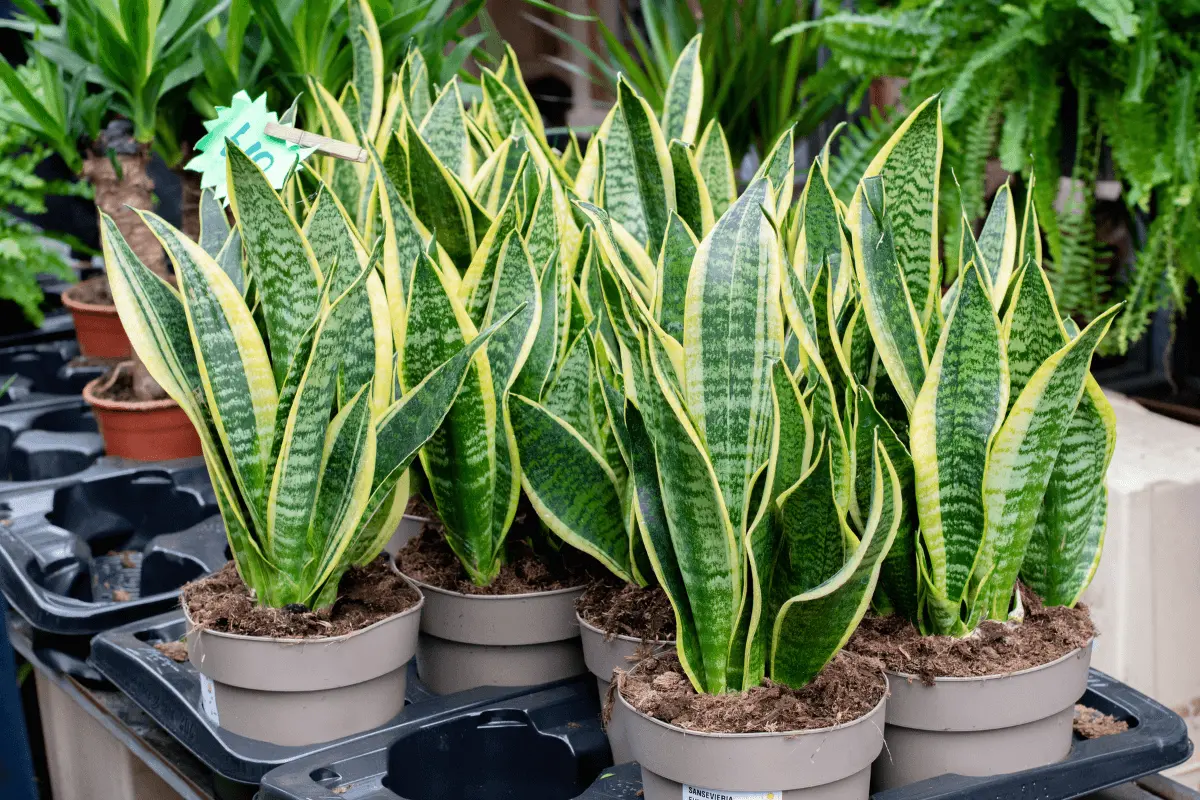
The Snake Plant, also known as Mother-in-Law’s Tongue, is ironic in its name because of the belief that it may ward against snakes. It is believed that this erect plant’s thick, slightly thorny foliage serves as a physical barrier against snakes. However, empirical data supporting its potential as a snake repellent needs to be included. Thus, its use in this capacity should be considered adjunctive to other techniques of snake management.
Garlic

Garlic is well-known for its pungent odor, which is repulsive to many animals, including snakes. Garlic, which releases sulfur compounds when its leaves or bulbs are crushed, might be a natural deterrent if planted throughout the garden. Although there is no hard evidence that garlic is useful as a snake deterrent, it is commonly used as part of a comprehensive strategy to eliminate snakes and other pests.
Mugwort
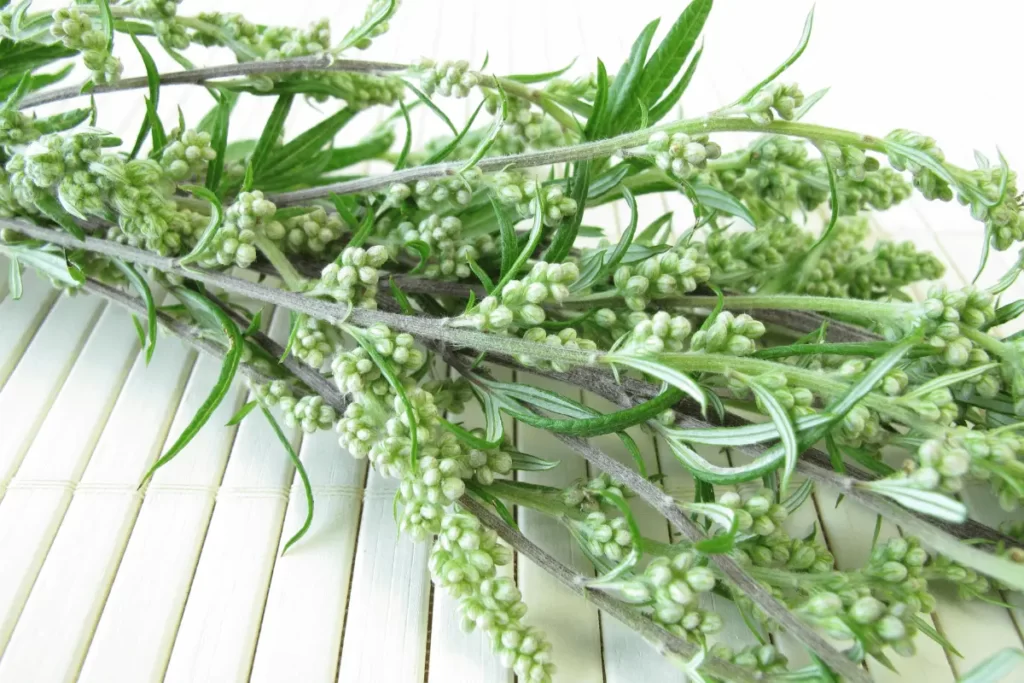
According to popular belief, mugwort has magical abilities, including the ability to ward against snakes. According to this belief, snakes avoid the area because its smell and flavor are too unpleasant for them to want to spend time there. Like many other claims about plants and snake deterrents, this one lacks sufficient scientific proof and should be part of a comprehensive strategy for managing snake populations.
Onion
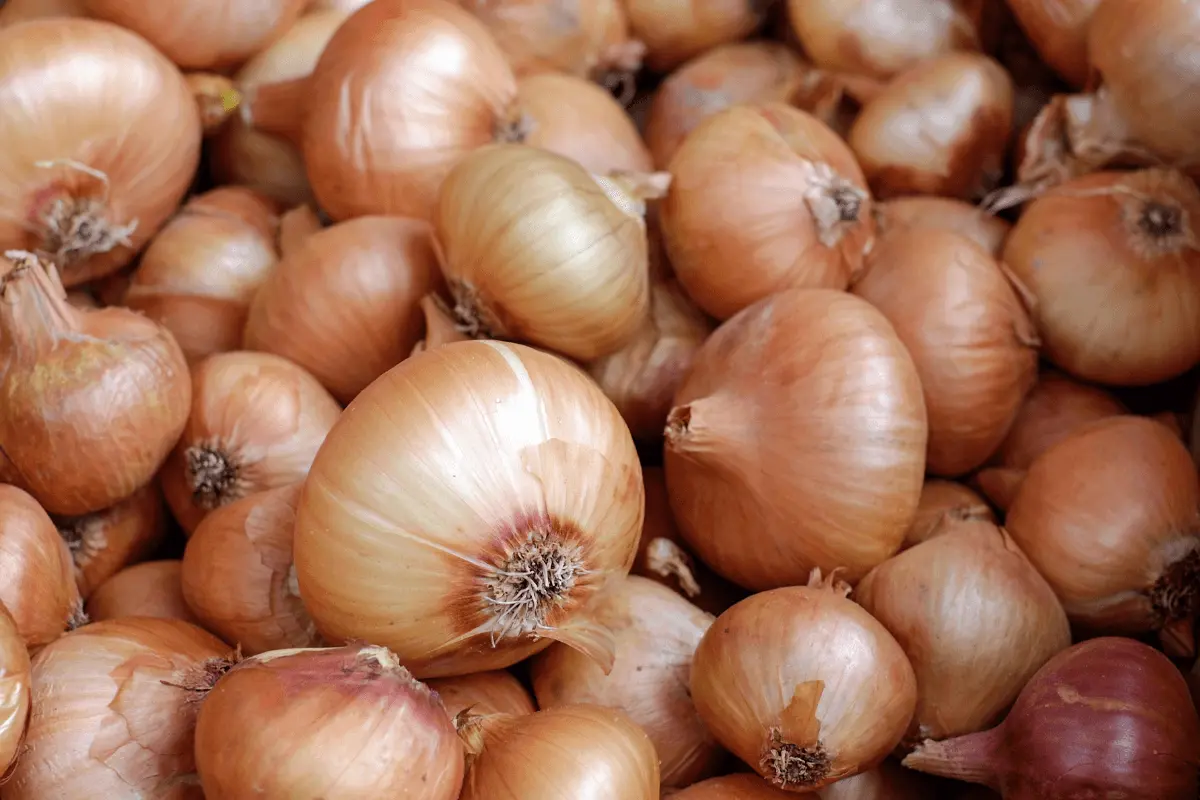
The pungent odor of onions is often regarded as an effective pest deterrent. It has been hypothesized that snakes may avoid locations where onions are plentiful because of their strong odor, especially after being crushed. However, empirical data supporting the usefulness of onions is weak, and their usage should be regarded as supplemental to other snake control measures, like that for many other plants believed to dissuade snakes.
West Indian Lemongrass
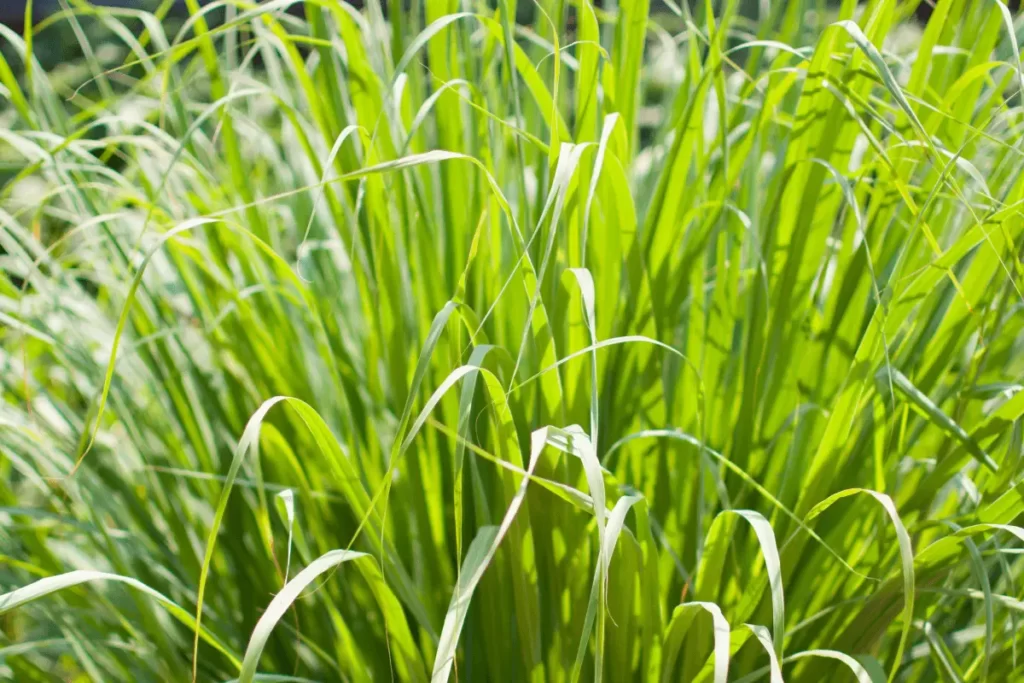
West Indian lemongrass is related to regular lemongrass, but it contains significantly more citronellal, a chemical effective in keeping bugs at bay. This strong odor may discourage snakes, or so the thinking goes. However, there is little data to confirm West Indian Lemongrass’s efficacy as a snake repellent, and its potency may vary according to the type of snake being repelled.
Rosemary
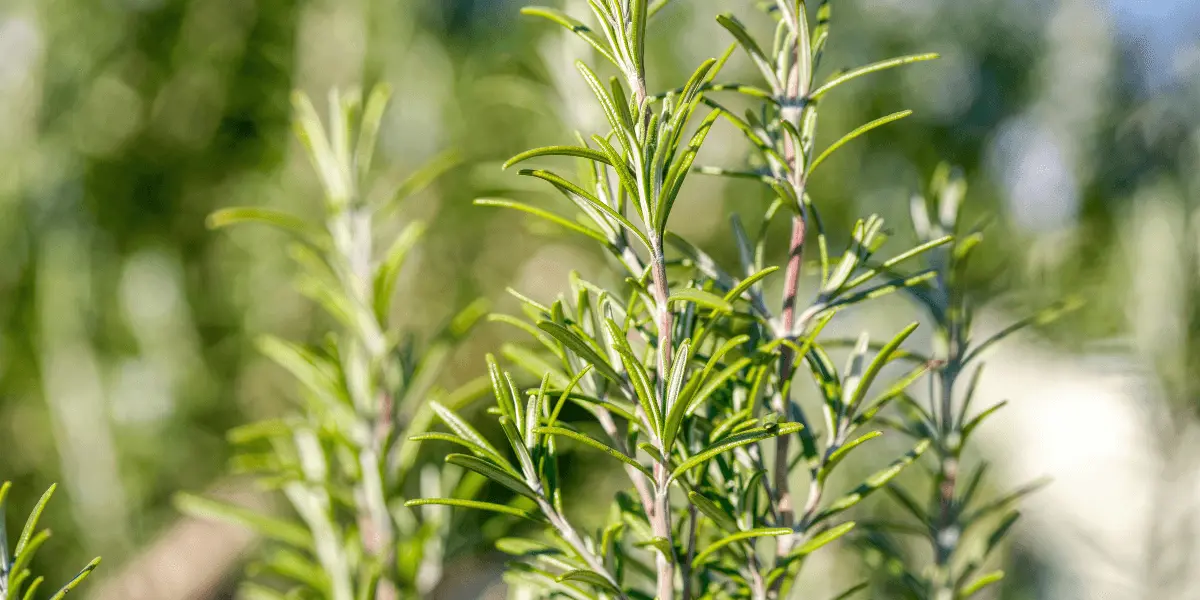
The piney aroma of rosemary is often cited as evidence that the herb may repel snakes. It is said that snakes avoid places with this herb because of its pungent aroma, which causes them distress. Again, the usefulness of rosemary for controlling snakes may vary based on the snake type, and the practice is neither widely acknowledged nor scientifically established.
Wormwood
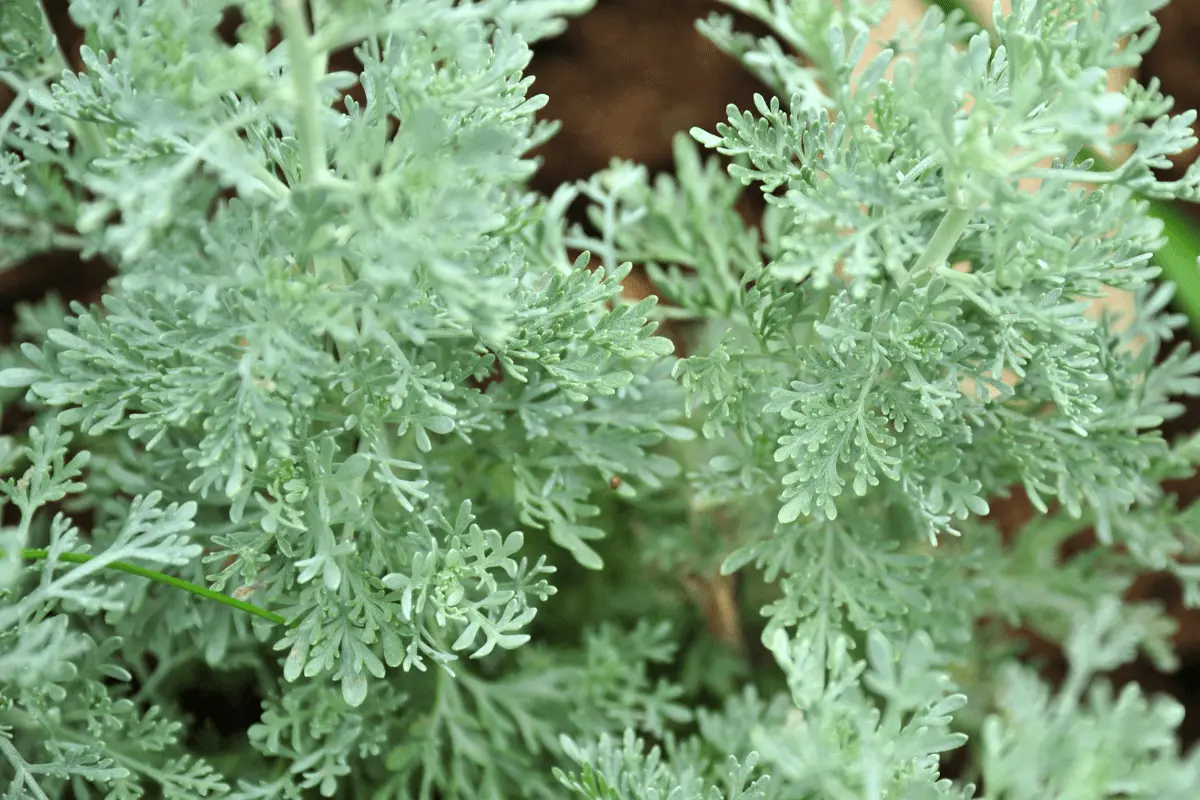
Wormwood has long been used to ward off unwanted visitors, such as snakes, because of its distinctively bitter flavor and pungent odor. The strong aroma of the plant is said to be too much for a snake to handle, discouraging its presence. Like the other herbs on this list, wormwood’s usefulness as a snake deterrent isn’t backed up by considerable scientific research, so it’s best used in conjunction with more proven approaches.
Conclusion
In conclusion, traditional wisdom and the fascinating interaction between flora and animals justify the use of plants, such as lemongrass, as snake repellents. Marigold, garlic, mugwort, onion, West Indian lemongrass, rosemary, and wormwood have strong odors that may confuse or overload a snake’s delicate olfactory system, deterring them. These plants may not repel all snakes due to snake variety and sensory perceptions.
There is little scientific evidence that these plants repel snakes. Their function in snake management should be complimentary, part of a holistic approach that involves keeping a clean, clutter-free environment and using expert pest control services.
